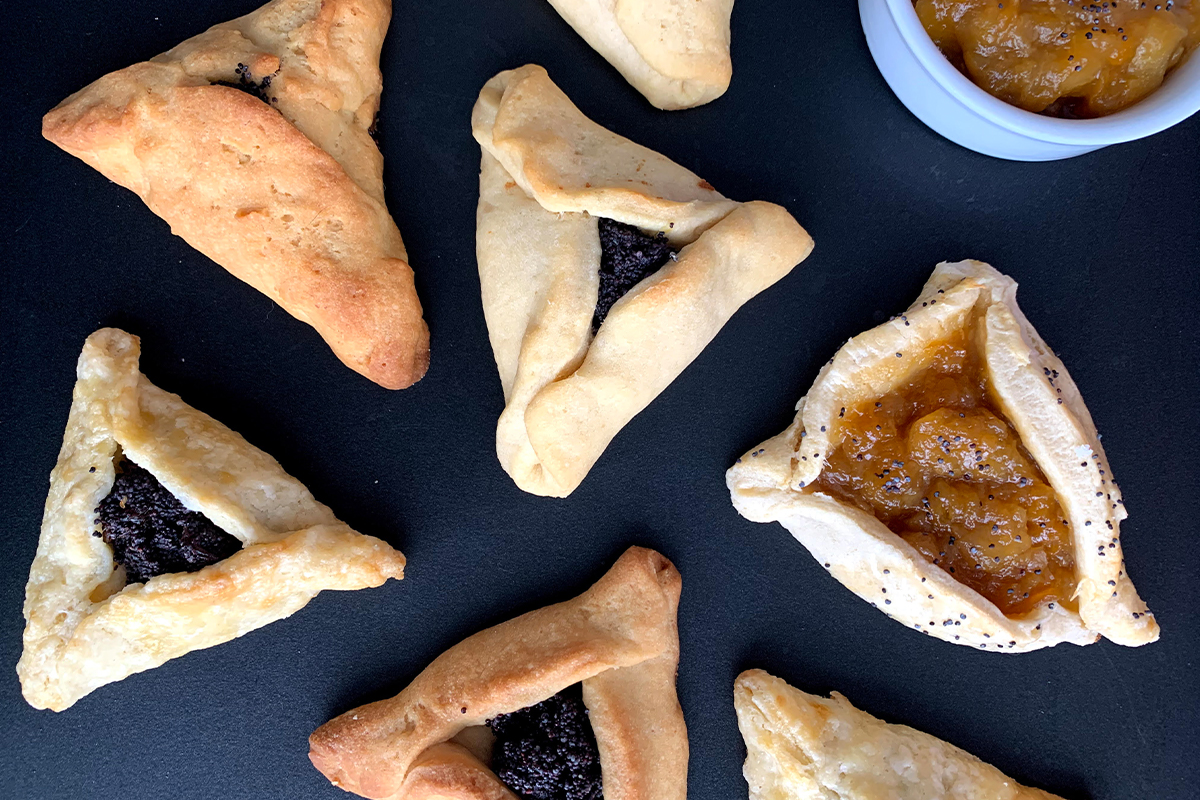There’s an old saying that goes, “two Jews, three opinions.” We’re a passionate bunch. So should it have been any surprise that this saying holds up when trying to find a straightforward recipe for hamantaschen? The internet abounds with dozens of different recipes for the classic Purim cookie. But don’t worry, because I’ve tried making almost every variation of recipe so you don’t have to.
First, what are hamantaschen?
Hamantaschen are three-cornered cookies that Ashkenazi Jews have traditionally eaten on Purim, commemorating the story of Queen Esther saving the Jews of Persia from her husband — King Ahasuerus’ — evil advisor, Haman. Haman had it out for the Jews after Mordechai — Esther’s cousin/adopted father — refused to bow down to him in keeping with Jews’ refusal of false idols. Oh, I should probably mention that King Ahasuerus didn’t know his new wife Esther was Jewish. She won a beauty contest to become queen after he banished his first wife, Queen Vashti, for refusing to dance naked for him. Don’t know about you, but he’s not winning many points with me.
Back to Haman. Haman was known for wearing a three-cornered hat and a big ego. It’s a look. Such a look that his hat inspired hamantaschen, literally meaning “Haman pocket” (cute). Some say the poppyseeds traditionally found inside hamantaschen represent Haman’s fleas (not cute). More commonly though, they are attributed to the vegetarian diet of nuts and seeds Queen Esther was said to have kept in Ahasuerus’ castle in order to keep kosher. At its most literal, the poppyseeds can be traced to “mohntaschen,” a German poppyseed cookie that was adapted by Jews for Purim and resembles the cookie we know today. Also, there’s this. Remember what I said about Jews and opinions?
To wrap up the history lesson and get to the cookies, we have: evil Haman, not-so-bright Ahasuerus, Jewish Queen of Persia Esther, and her cousin Mordechai. Vashti is already out of the picture. Mordechai visits Esther and tells her of her husband’s plan to kill all the Jews of Persia, thanks to Haman and his #ego. Terrified of what her new hubby would do if she confronted him (especially when she wasn’t summoned, which was apparently a big deal) (I mean, look what happened to former-Queen Vashti), Esther needs a little convincing but eventually comes around to confronting Ahasuerus.
And confront him she does. Girl throws a BANQUET and outs herself as Jewish and Haman as a jerk in front of all the guests! Ahasuerus, who is luckily a pushover, realizes that killing the Jews isn’t nice and reverses the plan. He also orders Haman be sent to the gallows he had built for the Jews. Damn.
Okay, now that we know the history, which cookies are the best?
Well, like I’ve said, I’ve tried just about all of them: classic pastry, dairy-free, yeasted, Claire Saffitz’s modern approach… all. the. cookies.
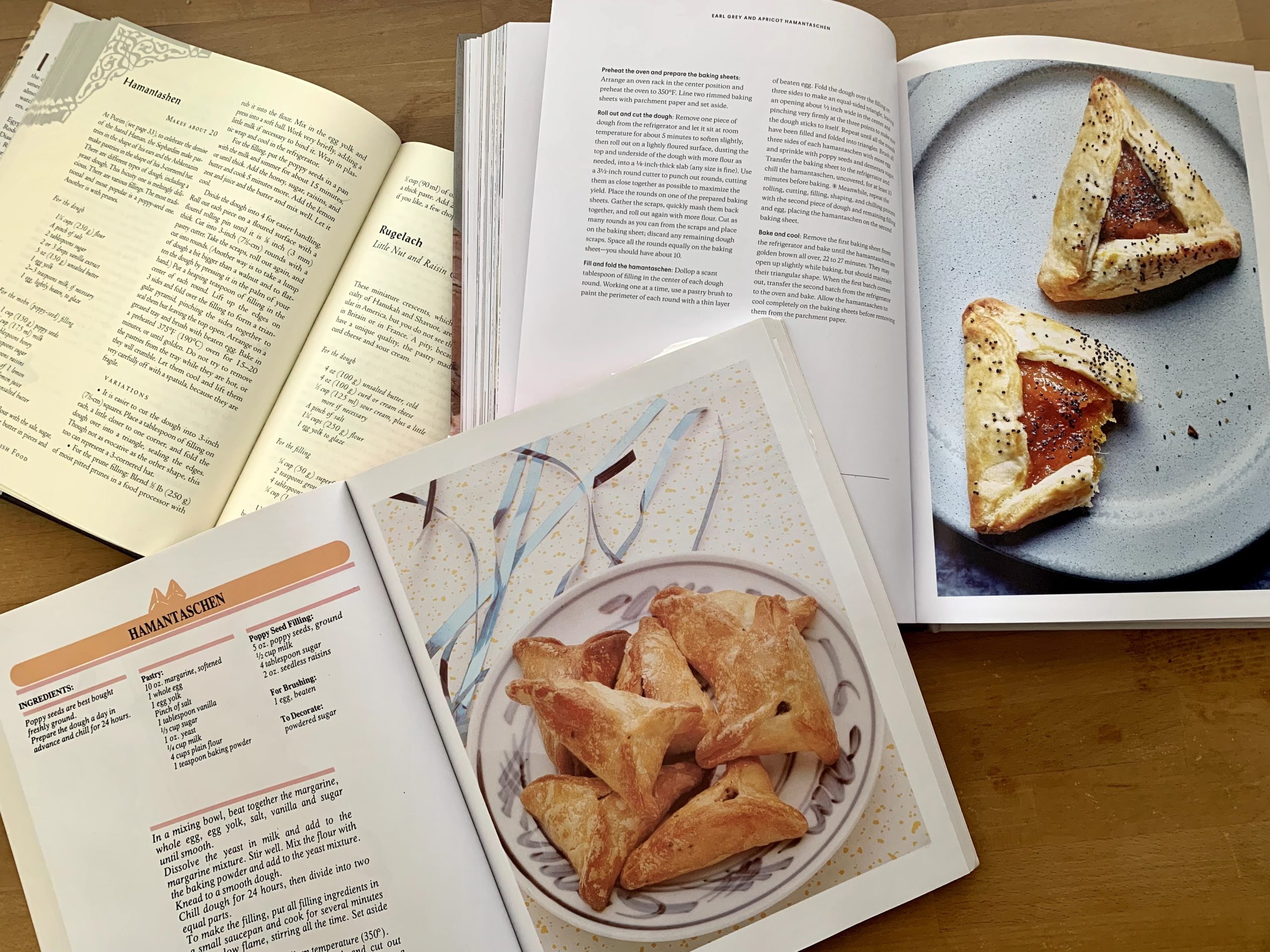
If you’ve never had hamantaschen, it’s worth noting it is really hard to find a tasty recipe. As Claire Saffitz shares in her 367-page ode to the final course, Dessert Person:
“Unfortunately, the hamantaschen you get in most bakeries aren’t very good, because the dough requires a lot of flour to help the cookies maintain their triangular shape in the oven and not unfold into wonky circles with exposed filling. This can lead to dry, tasteless cookies.”
That really says it all. The perfect hamantaschen is an elusive creature — one I can’t say I’ve discovered, even after baking more than 50 of them this week. But I got close.
The Contenders:
Classic “Rough-Puff” Pastry Hamantaschen
Recipe comes from Claudia Roden’s The Book of Jewish Food which is THE authority on all things Jewish cooking.
Pros:
- If you’ve ever baked a pie from scratch, this one will come naturally to you.
- Yummy light and chewy texture
- BUTTER
Cons:
- Most of mine opened up in the oven.
- Shaggy pastry results in a lumpy cookie, which wins no points for presentation:
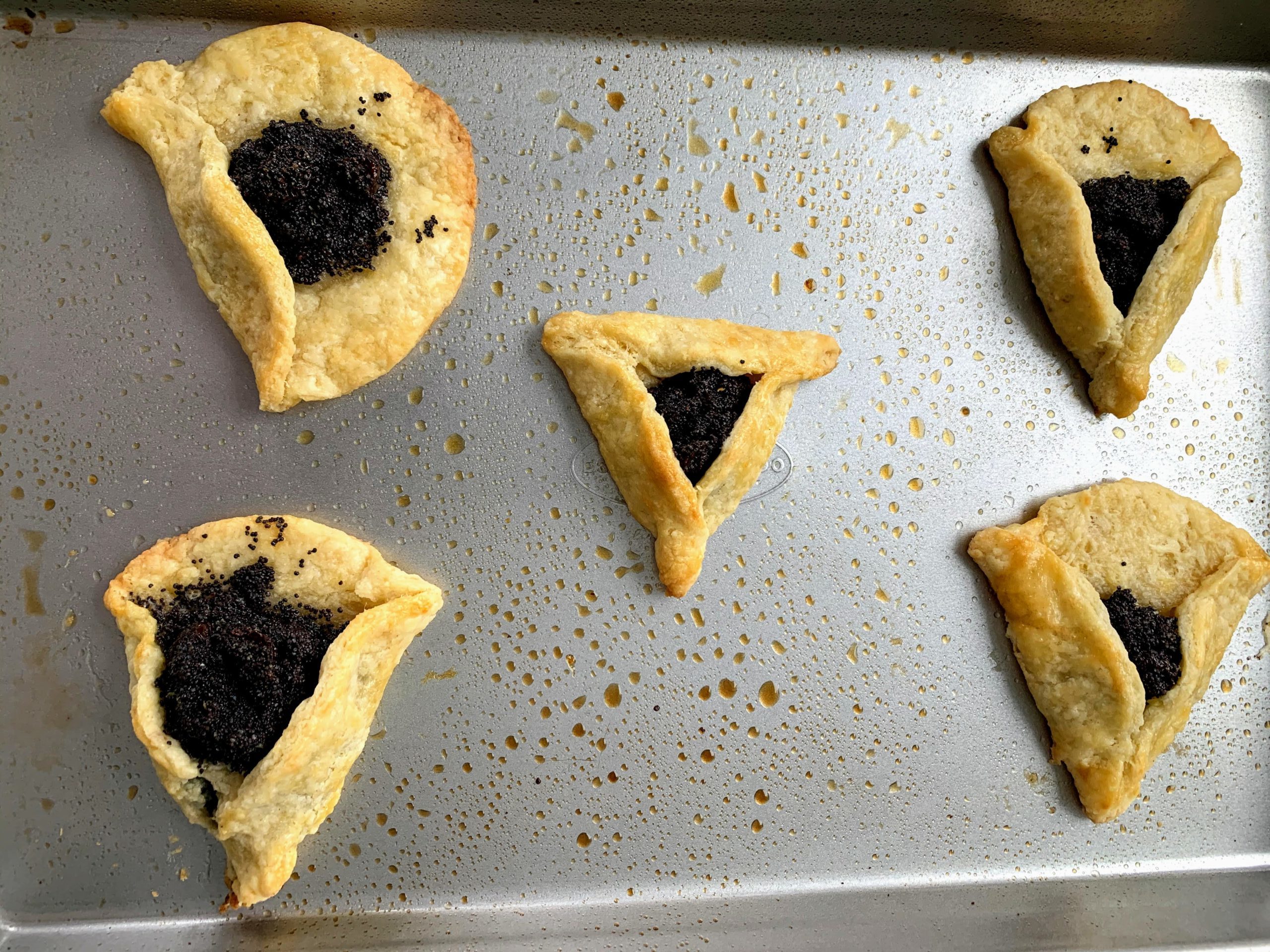
Dairy-free Hamantaschen (oil-based)
Specific recipe redacted to spare the innocent.
Pros:
- Good for those who keep kosher and/or vegan diets
Cons:
- Bland flavor
- Very sticky dough; doesn’t hold its shape and tears easily
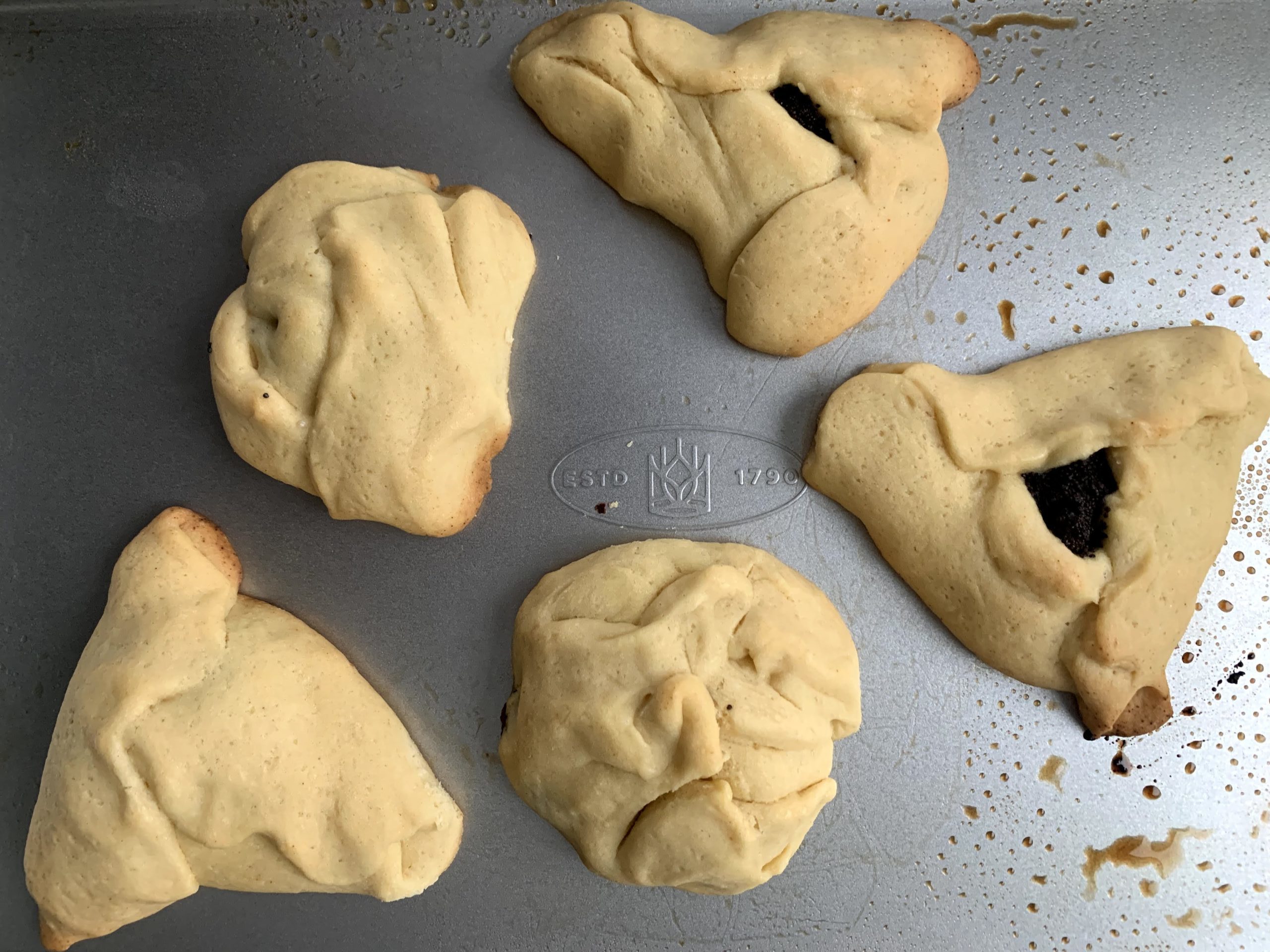
Yeasted Hamantaschen
From this weirdo ’90s cookbook my mom sent me.
Pros:
- Held shape best out of every other hamantaschen recipe
Cons:
- Long rest period: requires a 24 hour chill
- Margarine
- meaning, they were bland af.
- … lol but really though, margarine will just never do for a baked good what butter can.
- also, margarine browns faster than butter, so these will over-bake in a split second if not watched carefully
- Did I mention these were bland?
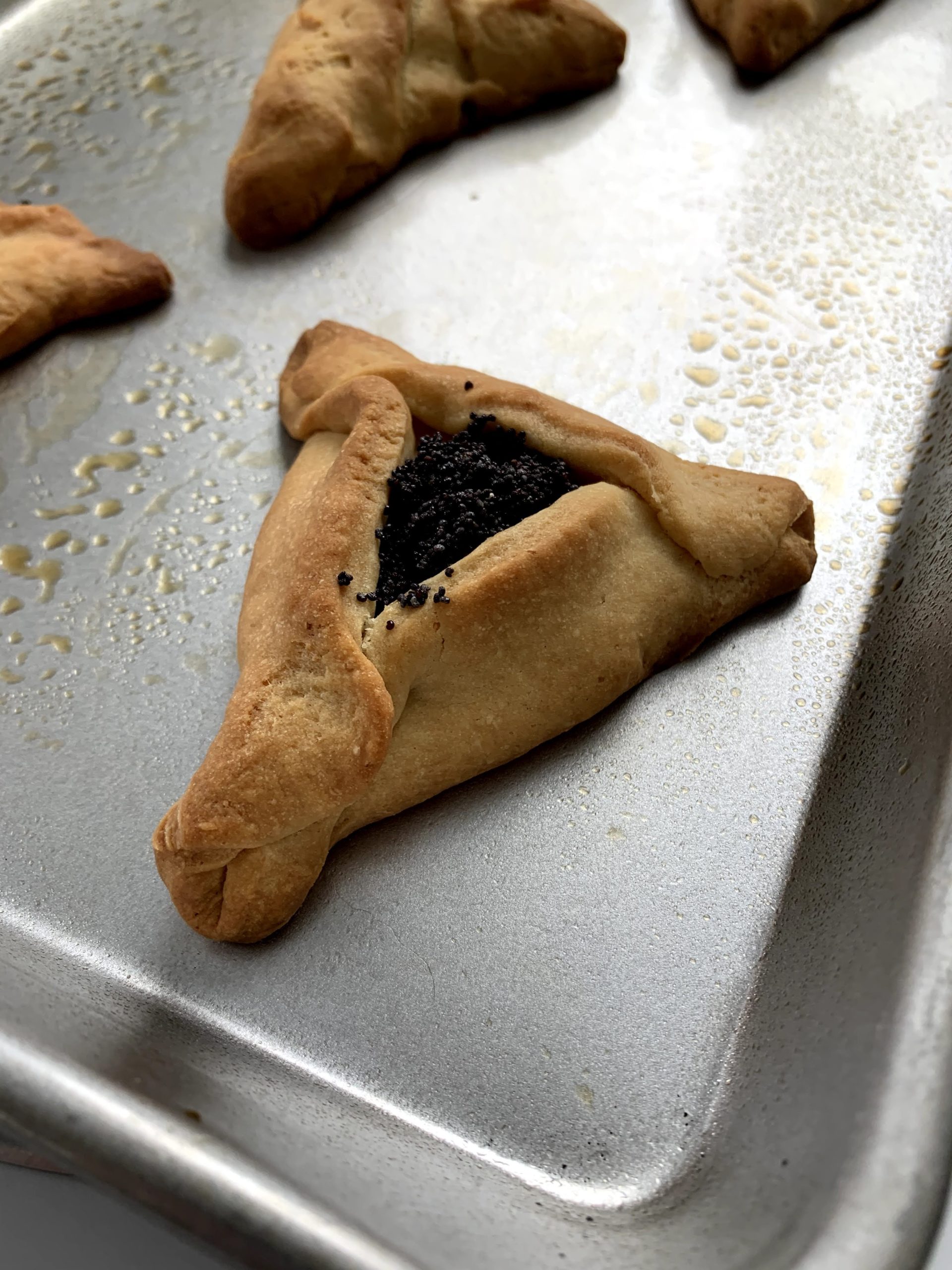
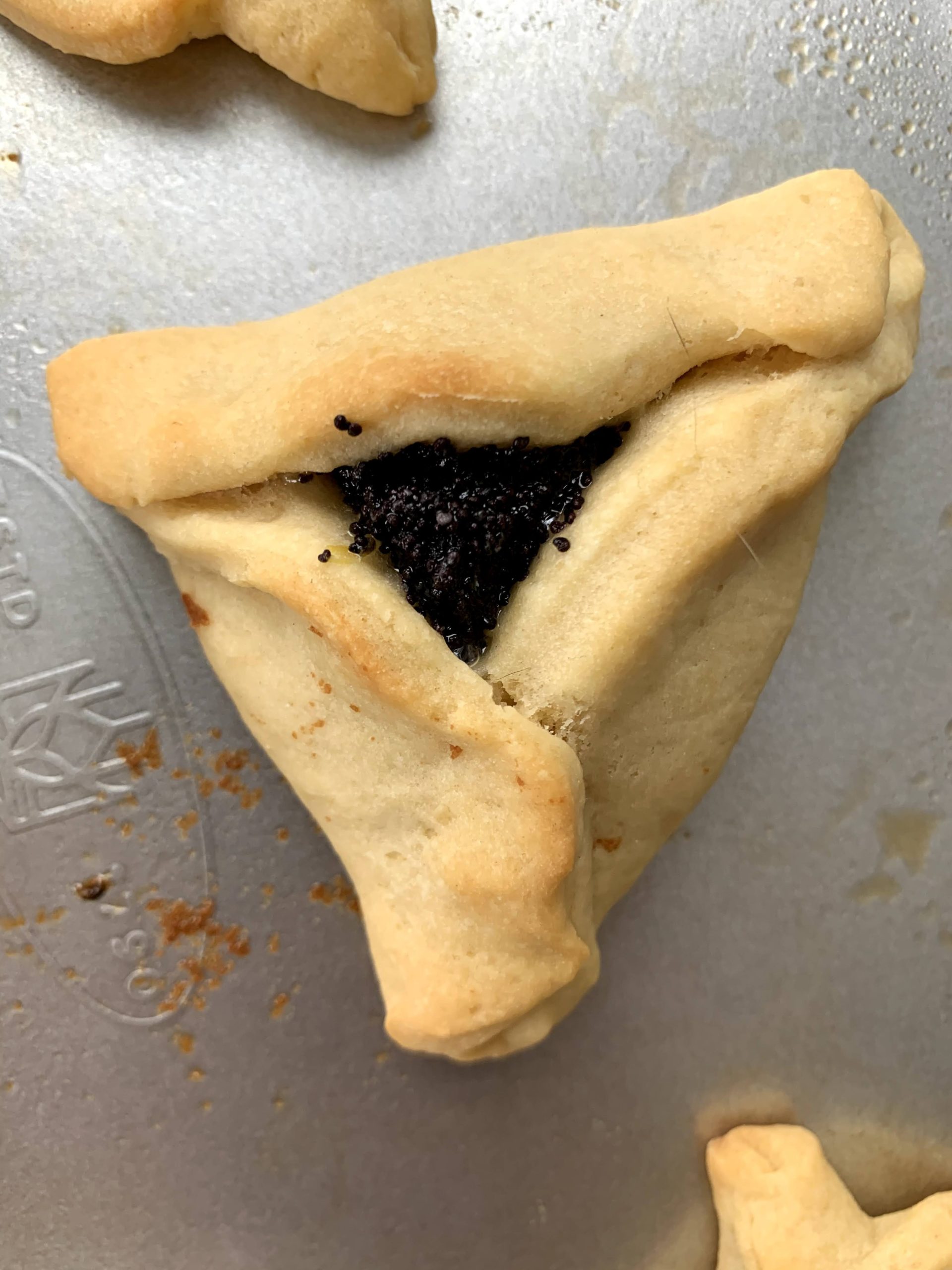
Claire Saffitz’s Hamantaschen
From Dessert Person.
Pros:
- DELICIOUS beyond compare. Seriously. Eat-them-piping-hot-off-the-baking-sheet good. Unreal.
- Easy to assemble pre-oven.
Cons:
- All but one of them opened up in the oven, despite a 24+ hour chill time (but really, flavor made up for this).
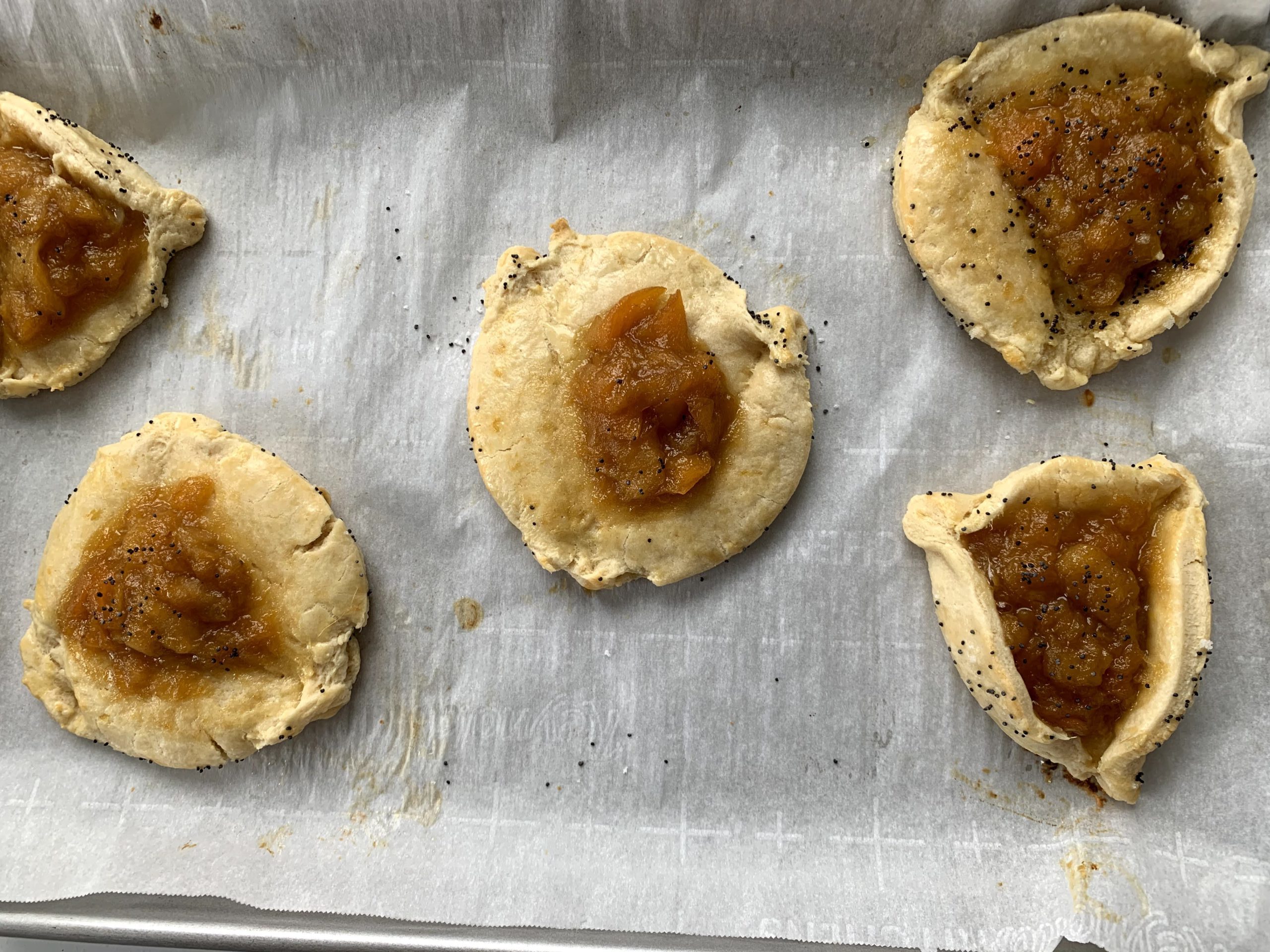
As a final note for those who are sticklers for rules: I followed each recipe to a tee, measuring ingredients by weight. If it said to use parchment paper to bake, I used parchment paper. If it said to chill for 10 minutes, I didn’t chill a minute longer. I resisted every temptation to alter the recipes when things were going south (looking at you, dairy-free option) to maintain fairness. Okay, disclaimer over — now for the results.
The Winner
Hi. My name is Lena Beth and I am one Jew with two opinions.
Not that we worship idols, but it would be blasphemous to say any other recipe could hold a Shabbat candle to Claire Saffitz’ cream-cheese spiked hamantaschen dough. I whipped up another round just for the experience of eating them straight out of the oven (again). This dough will change your life. And we didn’t even TALK about the Earl Grey apricot filling! *chef’s kiss*
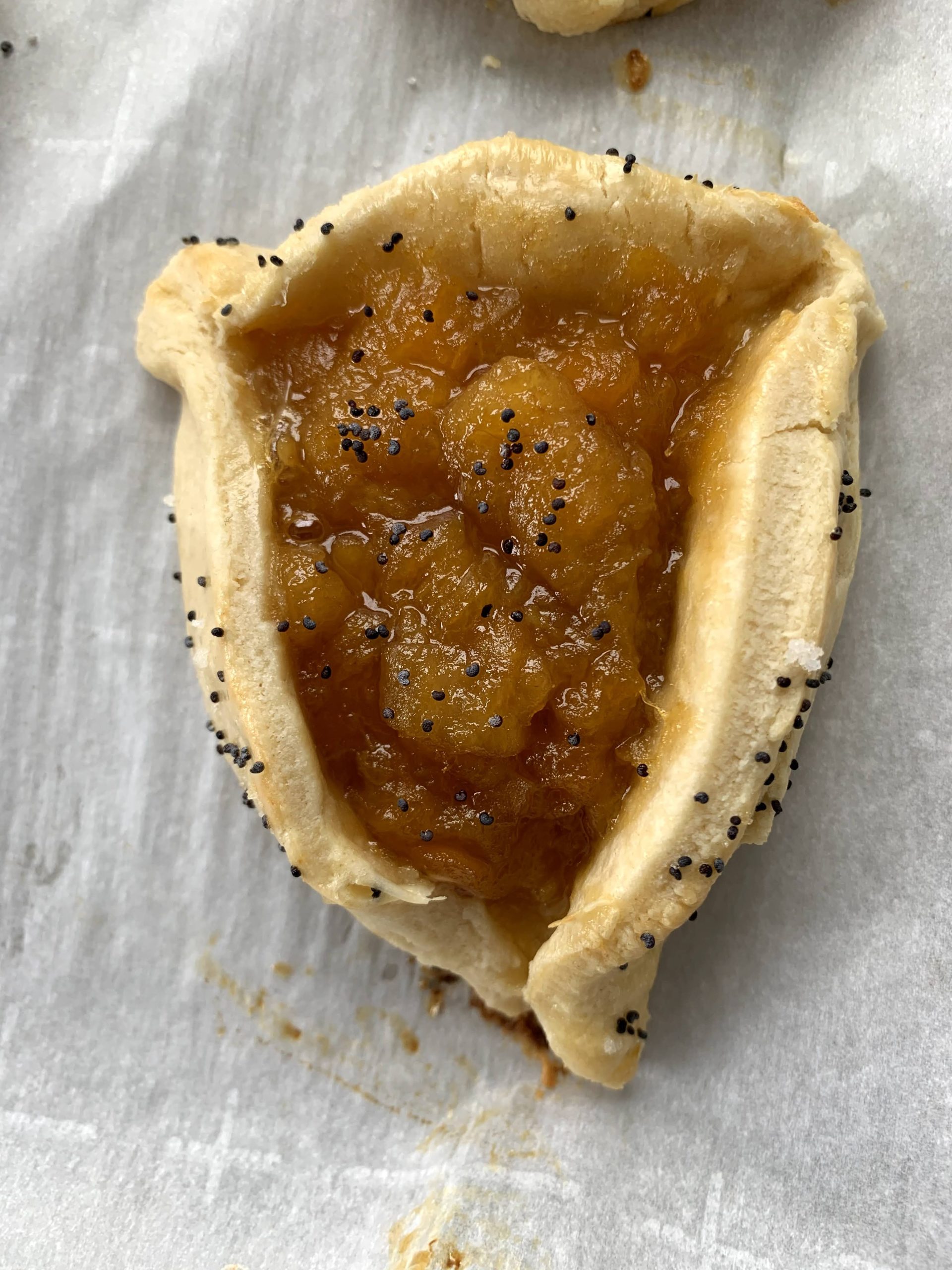
However, because this is a hamantaschen post and hamantaschen are, at their core, three-pointed cookies, the bland yeast and margarine cookie is a second place winner by default.
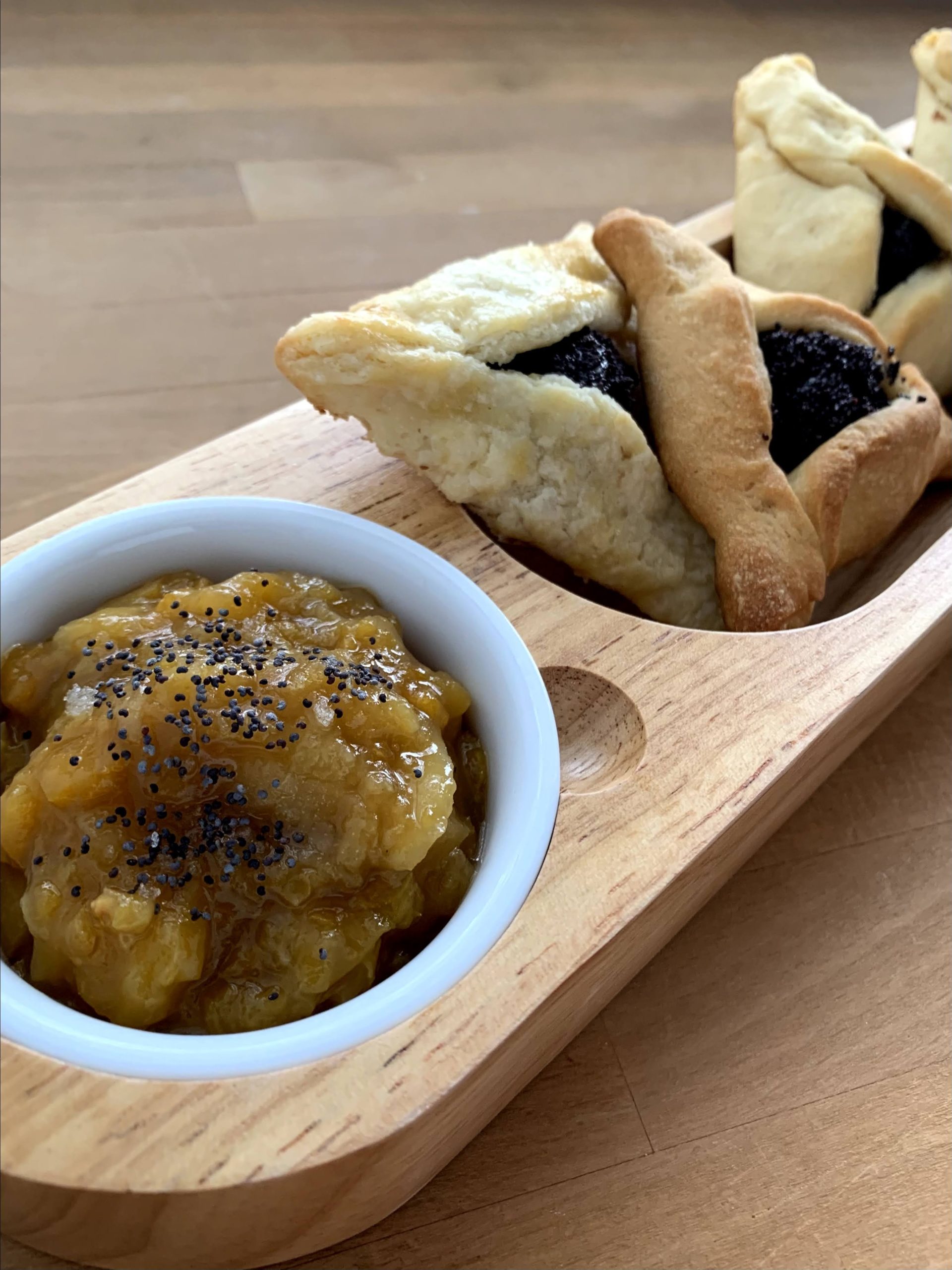
For now, you likely won’t find me eating another hamantaschen until 5782.
